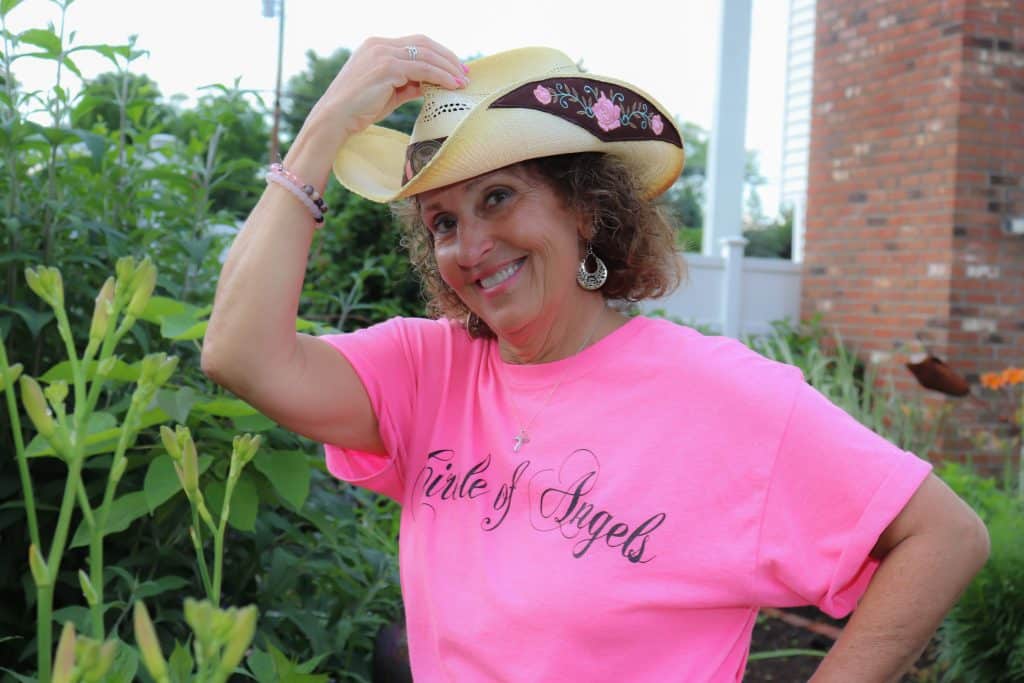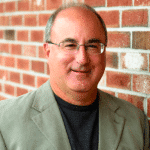WEST SPRINGFIELD — Cindy Sheridan Murphy, 63, had just come home from hiking and running with friends and she noticed one of her breasts was sore. Murphy said she’ll never forget the day she discovered the lump: June 29, 2014.
“I found a lump the size of a golf ball in my breast. By the time I got to the doctor the next day, it was the size of an orange. It literally grew overnight,” the West Springfield woman told Reminder Publishing.

Reminder Publishing submitted photo
Finding the cancerous growth stunned her because she did regular self-exams, had a mammogram five months before the discovery and had recently seen her obstetrician-gynecologist. Murphy was diagnosed with cancer on July 3, 2014.
“This came out of the blue. I was clueless,” she said.
Murphy said the breast cancer she had was triple negative, meaning it had nothing to do with hormones, so hormone therapy would not help. She already knew it was fast-moving — she quickly found out how aggressive it was when the doctor told her the disease has spread to at least one lymph node.
She had her breast removed and spent the next 18 months recovering from that operation along with surgery to remove 19 lymph nodes, chemotherapy, radiation, reconstructive surgery and complications from that operation.
Four years before that, in 2010, Murphy had her first cancer scare. She had a double lumpectomy that took two cancerous growths from the same breast doctors ultimately removed in 2014.
Murphy said her husband, two adult children, sister and countless friends supported her, not only through the anxiety and fear of dying, but the nausea and hair loss. She was also forced to leave her job as a dental hygienist because of swelling in her arm. She’d had that job for 35 years.
“Before all of this happened, I had trained to do a triathlon, so I really put my headspace into my cancer, like training for that triathlon,” she said. “It was just a different triathlon.”
Murphy said she is now free of cancer, healed physically by doctors, and emotionally through the support of family and friends.
Recovery’s dark days
During her recovery, as winter approached, the darkness was depressing — so Murphy’s friends formed the “five o’clock club.” Someone either called Murphy or showed up at her home every day at 5 p.m. for a visit, because that’s when it got dark, and that’s when she needed to talk. Sometimes the visitors came with food, but they always came with hope.
“My friends set that up without me knowing. They just took it on, and to this day, I always write about the ‘five o’clock club,’ because I think it was so important to help get me through things,” she said.
“I was scared to death, especially because it was my second time getting cancer. It was so serious. The doctors were moving very quickly. It was a whirlwind and I really began to wonder if I’d be here today,” she added.
Murphy knew the intense support she received from family, friends, the medical community and service organizations wouldn’t last forever for her, or anyone with cancer. “When the treatment and services stopped, I was in a panic because the doctors have done their job and they tell you go back and live your life.”
To beat cancer is to reject death, which is a triumph, said Murphy, but then there is the challenge of surviving.
“A lot of your family and friends go back to their normal lives because they got you through it. Your hair is coming back and you look good. But there’s the mental part that a cancer survivor is dealing with that people don’t know about,” she said.
Savoring moments
Murphy is now executive director of Each Moment We’re Alive, a nonprofit organization she founded in 2019. The cancer support network helps current or past cancer patients by offering a wide range of free services including peer-to-peer meetings and on-line support groups that include cancer patients, survivors, facilitators and social workers.
There are also step-by-step, self-help programs, forums and links to resources that help people with emotional and financial support. EMWA even connects employers with resources for their employees.
“A lot of people need that support because they don’t have it from their family and friends, or they don’t want to bother them anymore. They feel they’ve given what they could, but now survivors need to talk with other cancer survivors,” said Murphy.
Murphy said the organization began serving only women, but it is now open to any current or former cancer patients. She said there are almost two dozen people on the weekly online group meetings, and in the last five years, all of EMWA’s services have helped around 700 people from across the country.
The West Springfield cancer survivor said one of the group’s strongest messages is in its name.
“Before cancer, I really didn’t pay attention to getting up early in the morning. I got up hustle bustle, got the kids off to school and worked all day. I don’t think I enjoyed my day until I got out at 5, but then it’s come home, get homework done and cooking,” said Murphy.
“I never paid attention to the little things in life, and now I get up and I’m grateful for the sun shining. I’m grateful if it’s a rainy day, and I think ‘that’s why every moment we’re alive is a cherished moment,’” she added.
There is no charge for any of EMWA’s services. The organization funds its work through private grants, sponsorships, donations and fundraisers, like Canines Cancer Against, which takes place Friday, June 28, from 5-9 p.m. at the Morgan Road Pavilion, 459 Morgan Rd., West Springfield, behind the Irish Cultural Center. There will be live music, a food truck, craft beer, raffles and more.
Canines Against Cancer is EMWA’s biggest fundraiser of the year. It uses dogs as its emblem because they have been so important in helping people spiritually on their road to recovery.
For more information, visit eachmomentwerealive.org call 413-204-4682 or email Cindy@eachmomentwerealive.org.
Staasi Heropoulos has been a broadcast and print journalist as well as a corporate communications practitioner, in Western Mass. and internationally for more than 40 years. He loves writing feature articles on local people and places but also welcomes story ideas about corporate and government malfeasance. Staasi can be reached at Staasi.Heropoulos@gmail.com.


You must be logged in to post a comment.